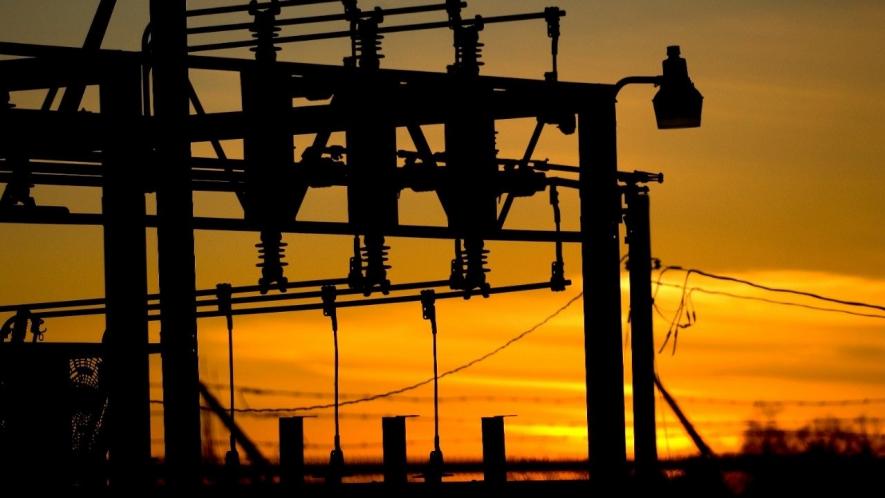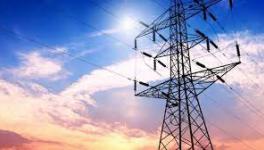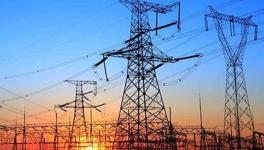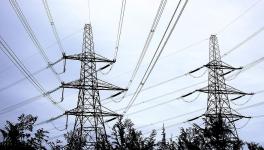Electricity Engineers and Workers Prepare for Strike

Electricity workers and engineers across India are on a warpath. The National Coordination Committee of Electricity Employees and Engineers (NCCOEEE) — a platform of unions and national federations with over 2.5 million members— has given notice to the government of a nationwide strike. The date for the day-long strike is not yet decided and the workers are expected to boycott work without warning in the coming days.
Before the strike, the power employees and engineers will hold a massive protest demonstration in Delhi during the Budget session of Parliament, which takes place in two parts – first in February, then in April/May.
Power sector employees in the country have been opposing the Electricity (Amendment) Bill 2014, which seeks to extend privatisation to power distribution.
Despite protests, central power minister RK Singh announced recently that the power ministry will push the Bill in the forthcoming Budget session of Parliament. So, the electricity employees’ unions have decided to intensify their protest.
Seeking to amend the Electricity Act 2003, the Bill wants to bifurcate the distribution function of the power sector into carriage (infrastructure) and the actual sale.
The Bill proposes that a government company lay down the wires (the distribution network) carrying the electricity to consumers, while private companies compete over selling the electricity and earn profits.
This basically means that the profits will be privatised while the losses are nationalised — even as the state-owned distribution companies are already burdened with losses.
Speaking to Newsclick, Shailendra Dubey, chairman of the All India Power Engineers Federation (AIPEF), said the date of the demonstration in Delhi will depend on when the Bill is introduced. He said since the Budget session in February is usually focussed on financial matters, it was likely that the government will try to pass the Electricity (Amendment) Bill 2014 in April/May.
Dubey said the NCCOEEE had begun a massive campaign to mobilise support across the five regions of the power grid network — north, north-east, east, south, and west.
“We have been holding regional and state-level conferences to spread awareness among consumers about the anti-people provisions of the Bill. It violates the right of the poor people to electricity,” said Dubey.
On 28 December, the NCCOEEE held the northern region conference in Chandigarh. The southern region conference will be held in Trivandrum on 11 January, and the eastern region conference will be held in Patna on 30 January.
“The dates for the conferences in Mumbai and Guwahati are yet to be decided,” he said.
Electricity employees’ unions have opposed the Bill ever since it was first introduced in 2014.
Dubey said the Electricity Act 2003 — which dismantled the State Electricity Boards (SEBs) and replaced them with three separate entities catering to generation, transmission and distribution — had already failed.
The 2003 Act was following the World Bank model of “unbundling” of the power sector — in order to allow private players into the safer and more profitable aspects, such as generation.
A large number of private companies did enter power generation in India after the Act was implemented, even as transmission and distribution remained with the state governments. Distribution was privatised in only two states, Odisha and Delhi, where it failed spectacularly.
Some states, such as Himachal Pradesh, had resisted the unbundling. But Kerala remains the only state that has not trifurcated its electricity board.
Electricity unions have rightly pointed out that the private companies would only compete for supplying power to the large, high-paying and thus profitable consumers, such as industrial units and commercial establishments, where as small-time consumers that are not profitable, such as rural households and small shops, will be left to the state.
The state-owned distribution companies have already borne losses over Rs 3.8 lakh crore, because they have no control over the cost of generation. Much of private generation takes place with the help of bank loans and private owners have been creating profits with various types of shenanigans. The ultimate losers are the govt. and the consumers in this game. This Bill would further deepen the crisis.
“There is a need to conduct a detailed study of the impact of the Electricity Act 2003, but the government is instead going ahead with another experiment to benefit the private businesses,” said Dubey.
The Electricity (Amendment) Bill 2014 introduces multiple supply licensees who would be supplying the electricity, and consumers can choose whom to buy electricity from. One of the supply licensees has to be a government-owned licensee.
“The distribution companies have already borne losses over Rs 4.3 Lakh Crore and debt over Rs 5 Lakh Crore, because they have no control over the cost of power generation, which has been privatised,” he said.
Much of private generation takes place with the help of bank loans and private owners have been creating profits with all kinds of shenanigans.
Dubey said even though the government has been claiming that the days of surplus power have arrived, more than 50% of the installed generating capacity is kept idle.
“Around 5 Crore households, with about 30 Crore people, are still without electricity. The total generation capacity of the country is 3,38,000 MW while the demand is only 1,58,000 MW,” he said.
“But even then 30 Crore people have no access to electricity. And the new amendments will only worsen the crisis of the power sector.”
Get the latest reports & analysis with people's perspective on Protests, movements & deep analytical videos, discussions of the current affairs in your Telegram app. Subscribe to NewsClick's Telegram channel & get Real-Time updates on stories, as they get published on our website.























